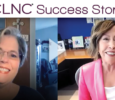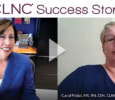I get a lot of email. Fortunately, I’m blessed to be the recipient of professional emails 99% of the time. But the other 1% is what I want to talk about in this blog.
Why is someone communicating to me in all CAPITAL letters or with bad spelling, poor punctuation, rambling styles and with no subject line (Really!). And if that someone is a legal nurse consultant, I worry that they are communicating with attorneys and other Certified Legal Nurse Consultants in the same unprofessional way. I have to assume they are. After all, with the possible exception of people with multiple personality disorders, most people don’t magically switch styles when they switch email accounts. In fact, some even use the same email account for business and personal – another no-no.
In this blog, you’ll find 15 tips that will guarantee the professionalism of your email communications with attorney-clients.
Tip #1
Get a real email address. Attorneys communicate with other professionals – attorneys, doctors, engineers, economists, etc. Professionals have email addresses like [email protected] or [email protected]. Those email addresses communicate more professionalism than [email protected] or [email protected].
When you send a business letter you use letterhead stationery and a matching envelope. Think of your email address as your envelope and make it reflect your professionalism. If you have a domain name for your legal nurse consulting business, you can easily set up an email account with the hosting provider and have your email address be congruent with your business name. Think [email protected]. That’s called branding and it’s a powerful tool in the right hands.
Tip #2
Use a “Subject:” that makes it clear what the email is about. Many people do not use the “preview” function in their email client which forces them to open the email to see what it’s about. Have you ever opened an email only to find it’s not what you expected or because you couldn’t figure out what it was? I recommend you use a subject that is clear and makes sense, not only today, but also in a few weeks when you’re searching for an email in a cluttered inbox or “sent” mailbox. If you’re working on a particular case, include the case name somewhere in the subject. If it relates to a meeting, include the date (re: Hawkins case – 10/26 client interview notes) and anything else that will help the recipient decide what priority to assign to reading it.
When someone sends me an email with a bad subject line and I then either reply or forward it, I’ll often correct the subject line by putting my subject in front of theirs. By keeping their subject in the line, they’ll know what the email is about and can delete their subject from further replies, etc. Also, if you change the subject matter of the email, make the appropriate change to the subject line or start a brand new thread.
Tip #3
Organize your inbox with folders. Certified Legal Nurse Consultants don’t just keep one general inbox with 547 emails on various subjects. They create subfolders organized by case names or other relevant naming conventions. You do this just like you create paper files in your office. After replying to an email, move that email into the appropriate folder. That keeps your inbox clear and uncluttered. If you’re waiting for a response, you might keep the original email until you get the response and then file both.
Tip #4
Communicate short messages inside the subject line of the email. End the subject line with “NoMsg” or “EOM” (end of message). This is a wonderful way to communicate a short message to someone. The non-preview people really love this one.
Tip #5
Turn on the spell-checking function of your email client. Just about every email client has a spell-checking function either built in or available as an add-on. This helps prevent minor and major typographical errors (but does not replace proofreading). Nothing, and I mean, nothing spells unprofessional more than spelling errors. If you do one thing for your legal nurse consulting career after reading this blog, please let it be this tip.
Tip #6
Get to the point quickly. Email is not a replacement for face-to-face communications and it’s not the place for long messages. You shouldn’t be sending the equivalent of a comprehensive legal nurse consulting report in the body of an email. Remember, a lot of attorneys read their email on their phones and don’t want to be scrolling and scrolling. If you need to send a large report or document, simply attach it to your email in Word or PDF format and put an executive summary in the email body. Break your email into short, succinct paragraphs. If your email has a point, and it should, get to it quickly without a lot of rambling. Attorneys like matter-of-fact, straight forward communications. That’s another reason to edit your email before you send it.
Tip #7
Use standard fonts. Avoid using different font colors when you need to emphasize a point. If you need to highlight something, use the highlight function to add a yellow highlight to a phrase (if your recipient uses HTML email). Use highlight very sparingly. This keeps the page clean and simple.
Tip #8
Avoid irony, sarcasm and humor. They aren’t always readily apparent in an email. Remember that the reader can’t hear your tone of voice or see that you were smiling while you wrote the communication. They may misinterpret your communication in a way you did not expect.
Don’t forward jokes, even if they are hilarious. Not everyone shares the same sense of humor and not everyone has a sense of humor (I can personally think of two attorneys that I’ve never heard laugh – ever). A joke you might find funny will be offensive to someone else and you risk appearing unprofessional. If you do send the joke, spell check it first (unless that’s part of the joke). Just joking. DO NOT send jokes.
Tip #9
Don’t fill in the recipients until you’ve completed composing the email. This reduces the chance of sending out an incomplete or unintended communication. Don’t hit “Reply to All” unless you know who “all” really is. This is a great way to send an email to the wrong people (perhaps even the opposing side). If you use the “auto-fill” feature for addresses, it will fill in the email addresses as you start typing. If you have any attorney-clients with similar names, you need to be extra careful. Only “Cc:” someone if they need to be copied. Be careful with the use of “Bcc:.” Attorneys like to know who is being included on their correspondence.
When replying to an email on your phone be extra careful. The limited display of “From” lines on phones make phishing emails that much easier ([email protected] may really be [email protected]) because you can’t see the actual address – only the alias. Also, you don’t always see all the people on the thread (making “reply to all” extra perilous).
Tip #10
Remember, once you send it, you can’t call it back. Email has limited ability for recall. In other words when you click “send” it’s off to its final destination, errors and all. We’ve all sent an email while feeling angry or upset about something and then wished we hadn’t. If you think you’re being a little strong, take a few minutes (or hours) before hitting send. Then come back and review it to make sure you really want to send it as is.
Tip #11
Know when not to reply. The purpose of email is not to generate more email. Everyone knows at least one person who has to respond to every email you send them. If you tell them “thanks,” they’ll tell you “no problem.” If it doesn’t necessitate a reply, then don’t reply. But, likewise people expect you to reply, even if it’s just to say, “I’m out of the office on vacation in Davenport” or “Got it and will be back to you shortly.”
Tip #12
Close your email with a signature. Email signature files are a great way to do a little more branding. Your signature should contain your name, credentials, title and phone number (so you don’t have to type it each time) and can also include your legal nurse consulting company name, address, a confidentiality statement or whatever you want. Outlook® allows multiple (selectable) signatures because not every email is created equally. Change the signature on your phone from the one that reads “Sent from my phone while sitting in traffic” to a text version of your full signature. Use your full signature on the first email and an abbreviated one on replies and on daily correspondence. It’s time consuming to have to scroll through a lot of full signatures to review the meat of an email thread that’s gone back and forth.
Tip #13
Separate your private life from your legal nurse consulting business with separate email accounts. Use the branded email for your company and business communications. Set up an account with your Internet service provider or one of the free email services like Gmail, live.com or Yahoo! for your personal email. That way when you do send that ROFL Cats email to everyone in your address book, it won’t go to your attorney-clients too.
Tip #14
Don’t rely on electronic files for email storage. Computers can and do crash. If your email is stored only on your computer and you suffer a crash, you’ll likely lose all that information. Make sure that your data backup plans include all your email files. This is one good reason to use a high-storage-volume email provider like Office 365.
Tip #15
Check your email regularly, but not excessively. There’s no greater hit on productivity than breaking your concentration to reply to an email as soon as it hits your inbox. It’s not a contest and there’s no reward for being the fastest responder. Instead I check email at regular intervals. That allows me to concentrate fully on the project at hand and not get sent off on rabbit trails. People certainly expect a timely response, but if you’re always responding immediately, you’re working like a pinball and not the Certified Legal Nurse Consultant you’ve been trained to be.
Take some time to review these tips and incorporate them into the email communications for your legal nurse consulting business. Remember, your email may be saying more about you than you want it to say. Keep it clear, concise and professional.
Success Is Yours,

Vickie L. Milazzo, RN, MSN, JD
P.S. Comment and share your tips for professional email communications.








